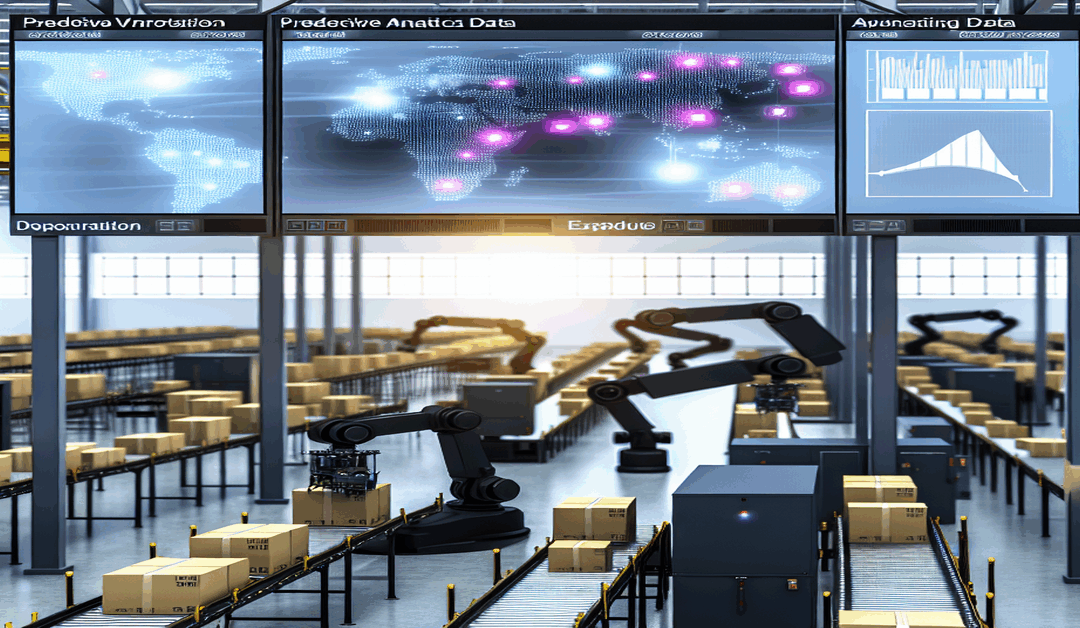Revolutionizing Logistics: The Rise of Automation and Data Analytics
In today’s fast-paced, interconnected world, the logistics industry is undergoing a remarkable transformation. As e-commerce continues to expand at an unprecedented rate, businesses are turning to automation and data analytics to streamline their operations and meet the ever-growing demands of consumers. This article delves into the fascinating world of logistics automation, exploring its driving forces, the critical role of data analytics, and the impact of global tariffs on this rapidly evolving industry.
The Exponential Growth of Logistics Automation
Picture this: In 2024, the global logistics automation market was valued at a staggering $92.9 billion. Now, projections indicate that by 2030, this figure will skyrocket to an astonishing $157.7 billion, representing a compound annual growth rate (CAGR) of 9.2% [2]. These numbers underscore the immense potential and rapid adoption of automation technologies within the logistics sector.
E-Commerce: The Catalyst for Change
At the heart of this transformative journey lies the meteoric rise of e-commerce. As online shopping continues to gain popularity, businesses are grappling with the challenges of managing vast inventories and ensuring efficient distribution. Automation emerges as the key to unlocking operational excellence, enabling companies to keep pace with the relentless demands of the digital marketplace [2][5].
The Power of Data Analytics
In the realm of logistics automation, data analytics has emerged as a game-changer. By harnessing the power of data, businesses can gain invaluable insights that drive informed decision-making and optimize operational efficiency. **Predictive analytics**, in particular, has proven to be a groundbreaking tool, empowering companies to forecast demand patterns, fine-tune inventory management, and streamline planning processes [2].
Imagine a world where businesses can anticipate customer needs before they even arise, ensuring that the right products are in the right place at the right time. Data analytics makes this vision a reality, enabling logistics providers to stay one step ahead of the curve and deliver unparalleled service to their clients.
Navigating the Tariff Landscape
In an increasingly interconnected global economy, tariffs play a significant role in shaping the logistics automation market. The “Logistics Automation Strategic Business Report and Tariff Impact Analysis Report 2025” delves into the intricacies of recent global tariff developments and their implications for the industry [2].
**Tariffs** can have a direct impact on the cost of automation equipment and parts, potentially affecting market growth. However, despite these challenges, the logistics automation sector continues to thrive, driven by the unwavering demand for efficiency and the need to remain competitive in a rapidly evolving landscape.
The Future of Warehouse Automation
As we look ahead to 2025 and beyond, the future of warehouse automation is brimming with exciting possibilities. Businesses are embracing advanced technologies to tackle pressing challenges such as storage optimization, labor shortages, accuracy enhancement, and safety improvement [4].
**Robotics**, artificial intelligence, and the Internet of Things (IoT) are revolutionizing the way warehouses operate, enabling seamless integration, real-time monitoring, and intelligent decision-making. As these technologies continue to advance, we can expect to see even more remarkable transformations in the logistics automation landscape.
Embracing the Future of Logistics
The rise of logistics automation and data analytics presents a world of opportunities for businesses across industries. By embracing these transformative technologies, companies can position themselves at the forefront of innovation, redefining the way goods are stored, transported, and delivered.
As we navigate this exciting era of change, it is crucial for businesses to stay informed, adapt quickly, and seize the opportunities that lie ahead. By harnessing the power of automation and data analytics, logistics providers can unlock new levels of efficiency, agility, and customer satisfaction, ultimately driving growth and success in an increasingly competitive marketplace.
#LogisticsAutomation #DataAnalytics #ECommerce #IndustryTrends
-> Original article and inspiration provided by ReviewAgent.ai
-> Connect with one of our AI Strategists today at ReviewAgent.ai

